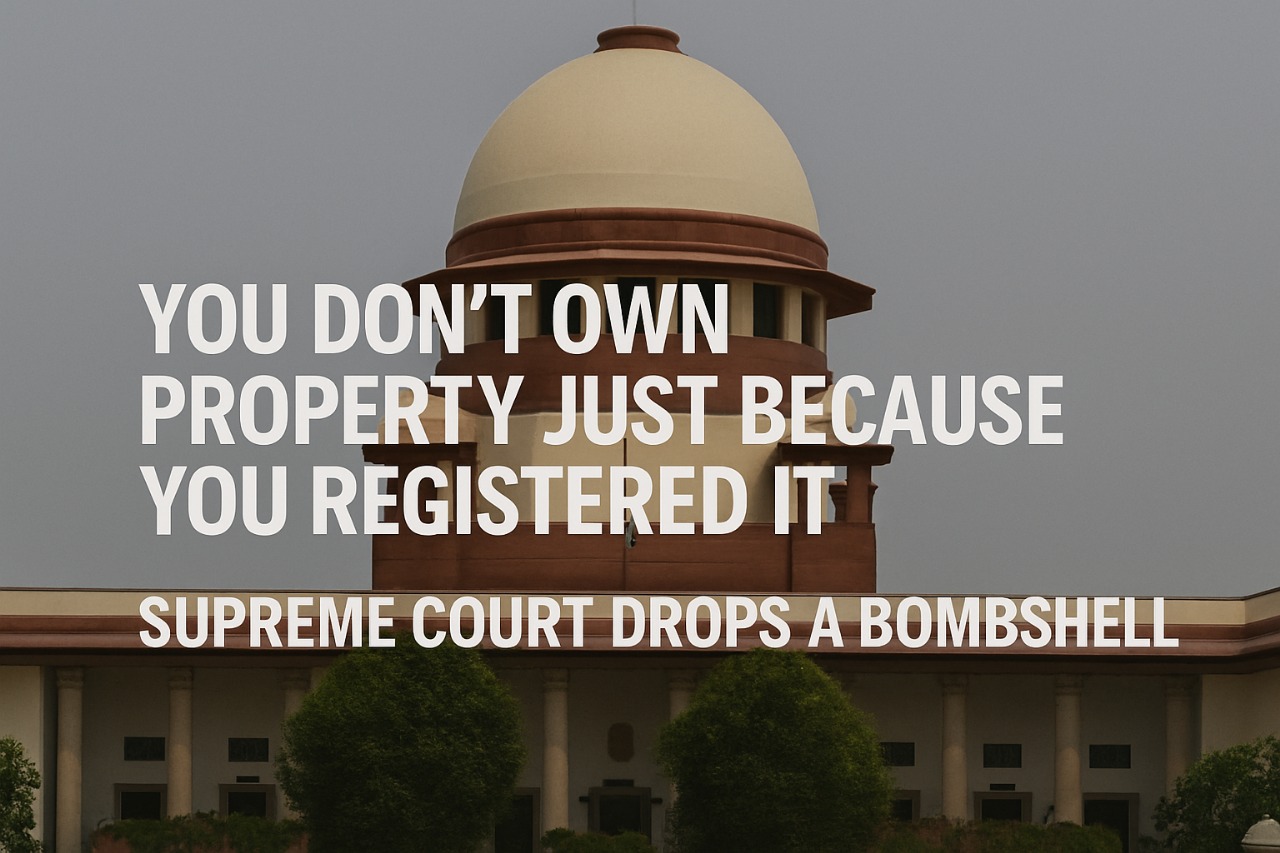Introduction
The Supreme Court of India has laid down a noteworthy principle regarding property ownership, where mere registration of a property in one’s name does not confer legal ownership. This decision is bound to set a precedent that will affect numerous property disputes across India. It emphasizes the primacy of lawful title and possession over claims made through paper documents.
Background of the Case
The case arose out of a civil dispute wherein one party claimed ownership over immovable property based solely on a registered sale deed. On the other side, the original owner opposed the title and possession of the property by claiming that the registration was fraudulent and that no valid transaction existed.
The High Court had leaned toward the side of the registered owner, saying that registered documents enjoy a presumption in their favor under the Indian Registration Act, 1908. The matter was then brought before the Supreme Court through a Special Leave Petition.
Key Legal Findings
A Bench comprising Justice B.R. Gavai proclaimed: “Title and ownership cannot be claimed merely on the strength of registration if the transaction lacks legality or is clouded by fraud.”
The Court set forth the following principles:
- A registered instrument is prima facie evidence of a transaction, but it is not conclusive proof of ownership.
- If the underlying transaction is void, illegal, or based on misrepresentation, the registered document loses its validity.
- The factors to be considered in resolving the issue of the title are: actual title, possession, and intention of parties.
- The Court referred to the judgment in Suraj Lamp & Industries Pvt. Ltd. v. State of Haryana, (2012) 1 SCC 656, reiterating that ownership flows from reasonable transfer and not only the formalities of registration.
Besides, the Bench sounded a note of caution stating that allowing title on the basis of such registrations would legitimize fraud, encourage benami transactions, and destroy confidence in property law.
Conclusion
This decision holds wide-reaching consequences for property buyers, legal heirs, and any persons transacting in land or real estate. A ruling such as this serves as a stark reminder of the importance of due diligence, lawful possession, and a valid title deed in claiming ownership.
The declaration by the Court strengthens judicial efforts to fight against property fraud and uphold transparency regarding land transactions. Moreover, it signals that the judiciary will have no sympathy for those who look at short cuts in achieving ownership by gaming the system.
About the Author
Agnimitra is a law student at the Department of Law, Hazra Campus, Calcutta University, Kolkata, with a growing passion for legal writing and research. Deeply interested in Intellectual Property Law, International Law, and issues related to Women and Child Safety, Agnimitra enjoys exploring how the law modernizes itself to the changing times of society. Whether it’s through writing articles or diving into legal debates, Agnimitra is always eager to understand and share the evolving nuances of the legal world.

